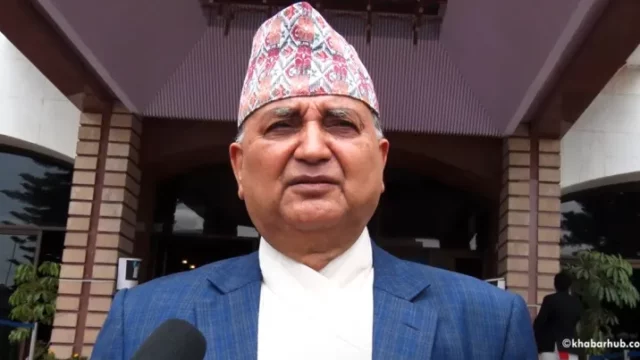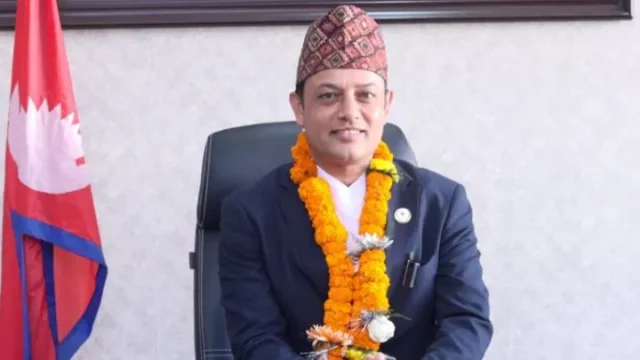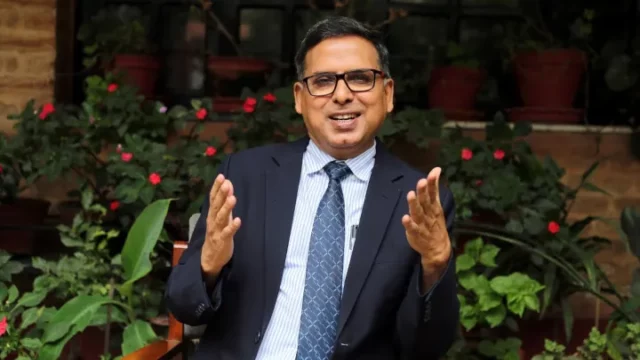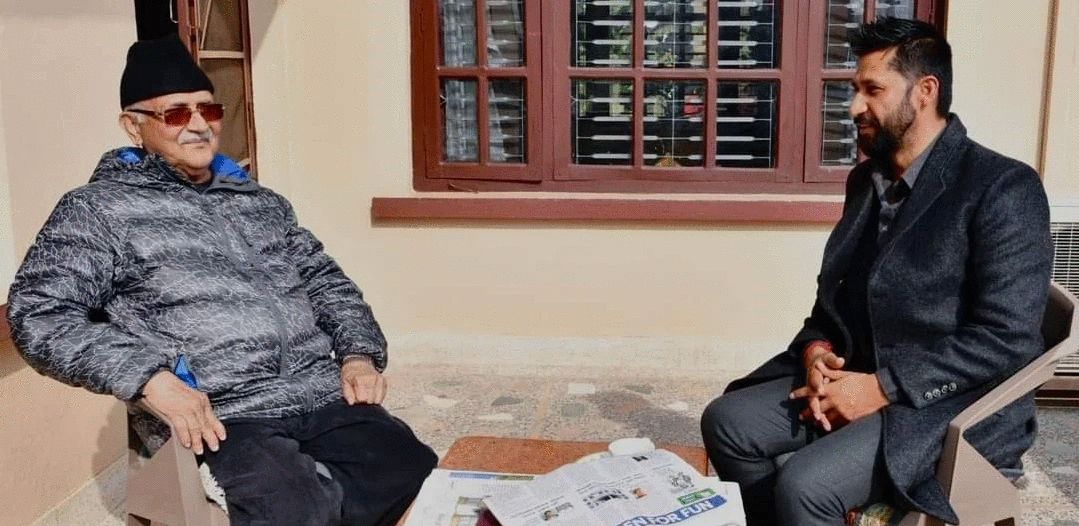KATHMANDU: The Memorandum of Understanding (MoU) inked during Indian Foreign Minister S. Jaishankar’s recent visit to Nepal outlining Indian projects amounting to Rs 20 crores has sparked debate regarding its appropriateness.
While discussions surrounding agreements with India are commonplace, the Rs 20-crore issue has become a focal point of controversy.
Prime Minister (PM) Pushpa Kamal Dahal Prachanda found himself before the parliamentary committee, compelled to provide explanations.
The central question remains: Is this agreement truly deserving of protest, as the opposition suggests?
Does it genuinely serve Nepal’s interests, as asserted by the government?
The lack of significant opposition protests raises further questions.
Are the opposition parties in agreement with the government on this matter? These inquiries continue to fuel the ongoing discourse.
Jhalanath Khanal, the leader of Unified Socialist, a partner in the ruling coalition, swiftly issued a statement terming the agreement as anti-national.
Rastriya Prajatantra Party Nepal’s Chairman Kamal Thapa also voiced his opposition.
UML’s dissent
Ishwor Pokhrel, Senior Vice-Chairman of the main opposition party CPN-UML, accused Prime Minister Dahal of displaying a dual character.

He emphasized the need for the Nepali people to be provided answers regarding the agreement.
Pokharel stated, “Should others manage our country’s budgetary system? This compromises Nepal’s self-respect.”
Pokharel acknowledged UML’s openness to foreign assistance but stressed the importance of integrating such help into the budget system.
He criticized Prime Minister Dahal, alleging a deviation from the established budgetary process.
Pokharel emphasized, “We endorse collaboration with any foreign country, but it must align with our budget system. Any divergence challenges our sovereign power, independence, and self-respect, especially when neighboring countries distribute aid in their own manner.”
RSP’s confidence post PM’s response
The Rastriya Swatantra Party (RSP), in opposition to the government, revealed seeking an informal explanation from the Prime Minister.
RSP leaders expressed concerns over foreign oversight of funds directly allocated to local levels, indicating a lingering disagreement.

In a clear stance articulated on Wednesday, the Prime Minister stated that there would be no direct investment in the Law, Justice, and Human Rights Committee.
RSP Vice Chairman Dol Prasad Aryal affirmed their confidence in this declaration, stating to Khabarhub, “We are reassured following the Prime Minister’s affirmation that the federal government will maintain control over the Rs 200 million grant agreement with India.”
Aryal emphasized, “We have gained clarity after the Nepal government assured us of thorough inspection and monitoring. Our confidence is based on the government’s commitment to investing in the designated work areas. Prior to this, both the party and I sought clarification.”
Quoting the Prime Minister, Aryal highlighted, “This government regulates itself through established procedures. The government will contribute 20 percent, and the remaining investment will be overseen by the embassy. Indian embassies cannot unilaterally invest whenever they wish.”
Aryal clarified that RSP believes India will invest under the supervision of the Nepal government, dispelling notions of direct investment.
He asserted, “Contrary to certain commentaries, direct investment is not the approach we endorse, and we will not permit it.”
Government’s position
Addressing opposition to the agreement, Prime Minister Dahal provided an explanation during the Law, Justice, and Human Rights Committee meeting at Singha Durbar on Wednesday.
He stated that the government welcomes the transparent discussion of the agreement with the Indian government in either the committee or the house.
PM Dahal asserts federal oversight on 200m grant
Prime Minister Dahal defended agreements allowing the Indian Embassy to utilize Rs 200 million, asserting that similar arrangements are not exclusive to India but extend to other nations.
He emphasized that this specific agreement is under the jurisdiction of the federal government.
“The government has no qualms about keeping reports on the India agreement transparent, either in the committee or the House,” stated the Prime Minister.
He clarified that there is no intention to conceal any reports, and he welcomes open scrutiny.
Addressing the Committee, he remarked, “Similar agreements exist not only with India but also with other countries. There is no theoretical basis suggesting that accepting 50 million is in the national interest while taking up to Rs 200 million is not.”
Expert dissent
Constitutional scholar Bipin Adhikari expressed objections, contending that this agreement with India undermines Nepal’s independence.
Despite Prime Minister Dahal’s assertion of the government’s upper hand, Adhikari maintains a differing perspective on the potential ramifications for Nepal’s sovereignty.
In a conversation with Khabarhub, he remarked, “Rs 20 crore is a substantial amount, surpassing the annual income of certain municipalities and rural municipalities. Allowing foreigners to wield influence over our political jurisdiction due to financial considerations poses a threat to nationalism.”

He further pondered, “How will Nepal respond if other countries, such as the Americans, attempt similar interventions? The politics of Nepal should not succumb to foreign influence.”
Expressing disagreement with the Prime Minister’s response, Adhikari stated, “While the Prime Minister asserts, there should be a consideration of what is unfair. Shouldn’t the process be rectified, Prime Minister?”
Constitutional expert Adhikari weighed in, contending that facilitating financial investments from the diplomatic sector in this manner is not appropriate.
He also emphasized the need for a careful examination of the process and its fairness.









Comment